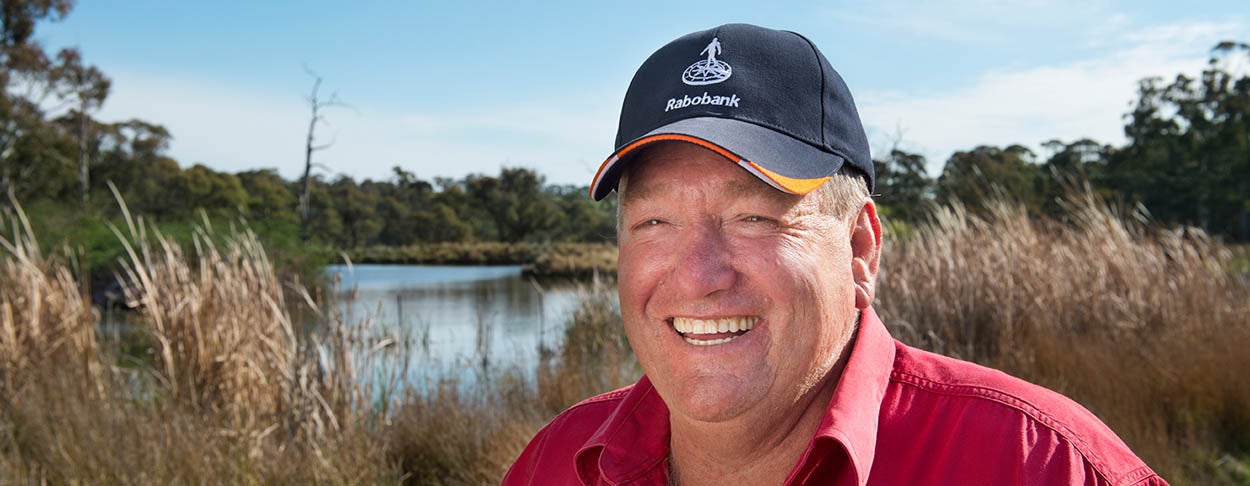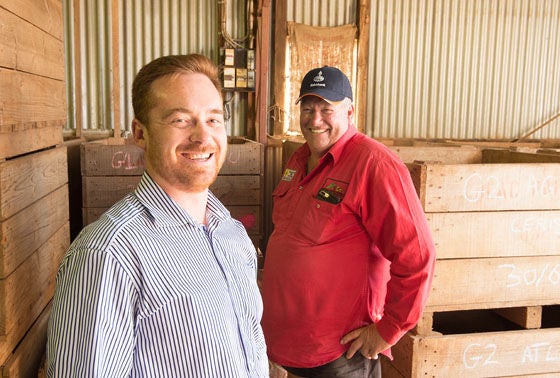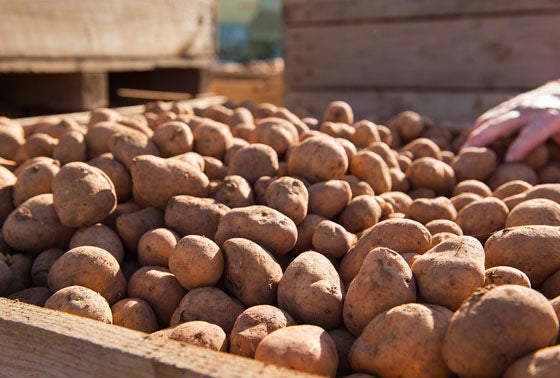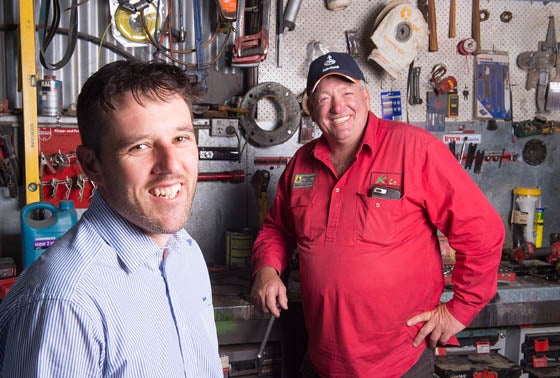Posted by on
10/09/2018
Garry Kadwell’s family have been farming since 1901. Their property is located only two and a half hours drive from Sydney, close to the picturesque old town of Crookwell.
Starting off as market gardeners, Mr Kadwell said the high elevation and relative isolation of the region has made it a haven for growing vegetable crops with little disease pressure.
“When I first started working here my father and grandfather had been growing a variety of vegetables including cauliflower, broccoli and seed potatoes as well as running a substantial pome fruit orchard,” he said.
“Seed potato production remains key to our operations and for many other farmers in the region with Crookwell being among the cleanest potato seed production areas in the Southern Hemisphere.”
Mr Kadwell currently produces around 2000 tonne of seed potato and runs up to 1800 head of prime lambs along with hay production. The family property ‘Fairhalt’ is 300 hectares and they lease an additional 400 hectares specifically for seed potato production.
“We grow around 20 different varieties of seed potato, supplying predominantly into South Australia”

“It has been a tough year but from a potato perspective the impact hasn’t been too bad, we have started to feed our livestock though and we are committed now to feeding them until September when things warm up a bit and there’s a bit more pasture growth.”
At a time when much of NSW is suffering through drought Mr Kadwell has a remarkably relaxed view on the weather but given his farming focus of working with the environment perhaps this isn’t too surprising.
Increasing production through biodiversity
In 2017 Mr Kadwell took home the Australian Government Innovation in Agriculture and Land Management Award for his focus on increasing farm production while delivering improved natural resource management outcomes.
"We have currently locked up around 32 per cent of our farm to conservation areas and have increased our focus on biodiversity and the encouragement of beneficial insects to combat disease pressure,” Mr Kadwell said.
“We also engage in continual testing of plants and encourage those with a natural immunity. “Our ultimate aim is a fully integrated pest management system that has eliminated the need for fungicides and insecticides.”

For many the idea of increasing productivity through reducing farming land would be a contradiction in terms but Mr Kadwell said they have already seen the benefits of taking this action.
“We’ve very quickly seen the beneficial insects return, there is also much better wind protection which in turn provides additional protection from frost,” he said.
“We’ve also been working with carbon sequestration and application of compost and have seen huge improvements in regard to the water absorption ability of our soils.”
Mr Kadwell said while some of the strategies they had adopted might still be seen as ‘new-age’ it really was about having a whole farm plan that kept an eye firmly on the future.
“When I was around 7 years old I was planting trees with my grandfather and I said, ‘Pop why are we planting trees here, there are already hundreds of them’. He said, ‘long after I’m gone these trees will still be here and you’ll remember me’.
“As I’ve gotten older I’ve really begun to relate to that feeling of preparing country for the next generation and so I’ve become more involved with Landcare and other government authorities with the intention of long term sustainability.
“Our remnant vegetation is healthy but getting toward the end of its natural life so our journey with Landcare started with fencing areas off and planting.
“Since then I’ve increased my work with a number of catchment management authorities and in partnership with government groups, which has allowed us to adopt these changes at a quicker rate and has provided us access to the information and knowledge we need.”
Mr Kadwell acknowledged that there were many farmers who were perhaps reluctant to bring ‘outsiders’ in to their business but he felt that at least in his case, his fears had been unfounded. “I was a bit nervous about inviting people to view the inner workings of our operations but when I realised they were there to help me and that I could also help them in really positive ways, there was no fear whatsoever,” he said.
“For this work to happen on the scale that is required there actually needs a community to be involved. Sustainability of our land involves community stewardship and is a responsibility we all must carry.”

A long-term view on agriculture is something that Mr Kadwell believes he shares with his financial partner Rabobank.
“I’ve banked with Rabobank for close to 30 years and they’ve been unbelievably good to me,” he said. “If I was asked to name what one of my best business decisions had been it would be linking up with Rabo. “It really is all about how they treat you, also their understanding of the industry is second to none and I feel like they know the ins and outs of both my business and myself as a businessman, including my shortcomings.”
With continued development and improvement planned for his operations Mr Kadwell is enthusiastic about the future. “From what I can see, the most exciting time for agriculture in the last 50 years is just beginning to emerge now as we continue to adopt the latest technology and opportunities,” he said.
“I feel we are just on the cusp of beginning to see agriculture being recognised for its strength and contribution to Australia’s economy. I believe that we are just catching the wave and the best is yet to come.”
